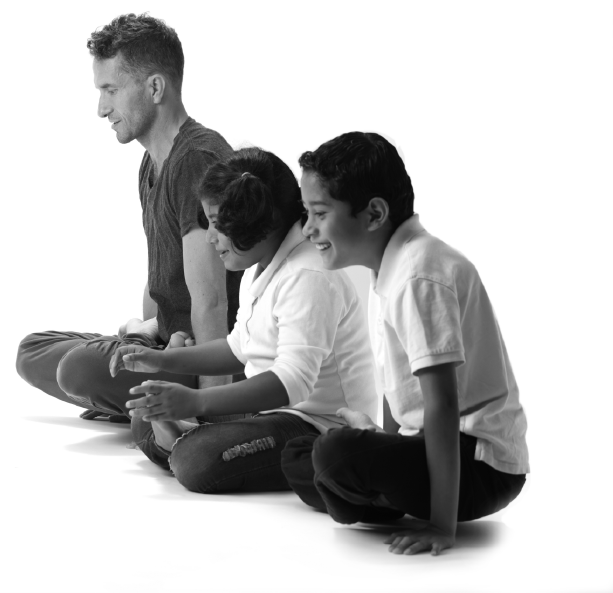We provide professional development and self-care strategies via adult Brain Breaks, trainings and webinars. We also offer ongoing support for our partner districts and organizations. Continuing ed unit opportunities available.
Self-Care Articles
National Public Radio
Teachers are stressed, and that should stress us all.
NASSP Bulletin
Principals can use mindfulness to prevent and reduce stress.
Mindfulness
Nurturing teachers’ inner resilience creates a relational foundation in the classroom.
Mindfulness
Teachers who participated in a mindfulness based intervention reduced their stress level by increasing their personal efficacy and tendencies to forgive colleagues and students.
Journal of Educational Psychology
Teachers in mindfulness training increased focused attention and occupational self-compassion along with lower levels of occupational stress and burnout.
Mind Brain & Education
Participation in a mindfulness program helped teachers improve psychological and job related factors such as performance, organization and burnout protection.
School Psychology Quarterly
Teachers who participated in a self-care program significantly improved their well-being and efficacy compared to peers who did not participate in the program.
CASEL Report
Most state credentialing processes do not require teachers to learn to identify and manage their stress in the classroom.
Report
Almost 50% of teachers indicate the stress and disappointment involved in teaching at their school isn’t really worth it.
RWJ Foundation
Almost 50% of teachers indicate high daily stress in their classroom.
Teacher Stress
Teachers who completed a mindfulness training program showed greater mindfulness, focused attention and working memory capacity, as well as lower occupational stress and burnout.
Child Development Perspectives
SEL participants showed an 11% gain in achievement.
Developmental Psychology
Pre-Kindergarten students who participated in a mindfulness program demonstrated prosocial benefits and earned higher end of year learning, socio-emotional development and health grades than their peers.
Mindfulness
A case can be made to connect SEL and mindfulness-based programming.
Aspen Institute
An expert group of scientists and scholars indicate social and emotional learning are intertwined with, and thus critical components of, learning.
American Journal of Public Health
Development of social and emotional skills in kindergarten was important for personal and public health outcomes later in life.
Child Development
Benefits of early childhood participation in SEL programs were consistent across race or socio-economic diversity. SEL skills at follow up were strong predictors of well-being at follow up.
Child Development Perspectives
Mindfulness practice supports pro-social behavior and academic success in young people.
Frontiers in Psychology
Mindfulness-based interventions for children and youths hold promise, particularly in relation to improving cognitive performance and resilience to stress.
Psychological Science
Growth mindset trained students earned higher high school grades than their peers who did not receive mindset training.
Mindfulness
Students improved their ability to cope with stress as well as their school engagement and attendance.
Journal of Adolescent Health
Teenagers who participated in an eight week yoga program significantly reduced eating disorder symptoms both during the program and at follow-up, four weeks after program completion.
Self-Regulation
Students who engaged in mindful yoga demonstrated significant increases in global and long-term self-regulation.
Substance Use
School-based yoga may have beneficial effects on preventing adolescents’ willingness to smoke cigarettes.
At-Risk Adolescents
Students at high risk for dropping out who received yoga intervention showed trends toward decreased alcohol use and improved social skills.
Adolescent Yoga
Students who participated in a yoga-based social-emotional wellness program showed significant reductions in anxiety, depression and psychological distress.
Yoga in Schools
Yoga in the school setting is worthy of continued research, and is a viable and potentially efficacious strategy for improving child and adolescent health.
Mental Health
Yoga has the potential to play a protective or preventative role in maintaining mental health in secondary schools.
Yoga in Schools
A controlled trial showed that yoga as part of high school PE suggests preventative benefits in psychosocial well-being.
Proceedings of the National Academy of Sciences
Heavy media multi-taskers are less able to filter out irrelevant distractions.
PLOS1
Higher media multitasking is associated with brain change.
Neuroscience News
Rhythm of Breathing Affects Memory and Fear
Wired
The web shatters focus, rewires brains.
Naure Reviews
Neuroscientific studies of mindfulness support the promising psycho-social and behavioral findings but more research is needed to understand how mindfulness works.
Child Development Perspectives
Mindfulness programs improved student attention control, emotion regulation and response to stress – neuroscience is beginning to understand how.
Neuroimage
Long term meditators have significantly larger brain volume in areas associated with emotional regulation and response control.
Psychiatry Research: Neuroimaging
Mindfulness can change our brains. Brain imaging indicates participants in a mindfulness program experieenced significant changes in brain regions involved in learning and memory processes, emotion regulation, self-referential processing, and perspective taking.
NY Times
Learning to learn: you, too, can rewire your brain.
Mindfulness Curriculum
Yoga and mindfulness interventions for youth can be feasibly implemented and reliably measured in school settings.
Prevention and Resilience
In response to the earthquakes in Puerto Rico, a satisfaction questionnaire showed the need for early intervention to prevent pathology and promote resilience.
Children
Mindfulness interventions improve mental, behavioral and physical outcomes in youth.
Mindfulness
Third graders who participated in a classroom based mindfulness program improved thieir reading grades.
Developmental Psychology
Elementary school students who participated in a program involving mindfulness and caring for others significantly improved on a number of social and emotional outcomes including reduced depression and peer-rated aggression levels.
Pediatrics
Mindfulness training helped low-income, minority, middle school students in Baltimore improve their psychological functioning and response to stress.
Mayo Clinic
Meditation and Mindfulness can increase focus and a sense of calm according to the Mayo clinic.
Frontiers in Psychology
Students (improved mindfulness, anxiety and creativity) and teachers (improved mindfulness, reduced interpersonal problems) both indicated significant benefits of participating in a school-based mindfulness program.
Mindfulness
Studies indicate mindfulness programs for youth show promise for improving a wide range of psycho-social and academic areas. Participation benefits appear to be most positive among youth in clinical settings and on psychological indicators.
Mindfulness
Adolescents who participated in a school-based mindfulness program significantly reduced symptoms of depression. This study suggests mindfulness has utility as a prevention and as a treatment for adolescents with depression.
Developmental Psychology
Pre-Kindergarten students who participated in a mindfulness program demonstrated pro-social benefits and earned higher end of year learning, socio-emotional development and health grades than their peers.
Mindfulness
Depression levels decreased among ethnically diverse students who participated in a mindfulness program.
Wall Street Journal
Student participation in mindfulness programs has benefits including: 24% decrease in aggression, 15% improvement in math scores and improved classroom behaviors.
University of Toronto
Kindergarten students who participated in an eight week mindfulness program improved their self-regulation skills, pro-social behavior and reduced their hyperactivity.
Greater Good Center
The Greater Good Center at UC Berkeley has a great annotated mindfulness in education research highlights page.
Monterey Herald
Mindfulness is catching on in the Monterey Bay.
NBC News
Schools in San Fransisco Unified are experiencing benefits of mindfulness such as suspensions decreasing 79% over four years.
Journal of Child and Family Studies
Elementary school students and parents with ADHD may benefit from participating in mindfulness programs.
Mindfulness & Mental Health
Mindfulness interventions were helpful for students’ mental health and well-being.
Mindfulness & Youth
Mindfulness-based interventions can be effective in children and adolescents with mental health symptoms.
Mindfulness in Schools
A mindfulness-based intervention positively impacted responses to stress including rumination, intrusive thoughts and emotional arousal.
Mindfulness in Schools
A mindfulness-based program statistically improved stress, affective regulation and emotion regulation skills.
Working Memory
Participants in a mindfulness meditation trial showed improvements in working memory capacity.
Stress in School-Age Girls
A mindfulness-based stress reduction program showed increases in self-esteem and self-regulation for fourth- and fifth-grade girls.

Why We’re Focused
- More than 3 million kids have been treated for depression, and this number has doubled over the past 5 years
- 77% of kids are bullied: mentally, physically, verbally
- 70% of parents report that their children experience high levels of stress from school
- Students brains are being rewired due to multi-tasking,
media consumption & internet use.
This makes them significantly less capable of focusing - Teen suicide rates up 70% from 2006 - 2016
